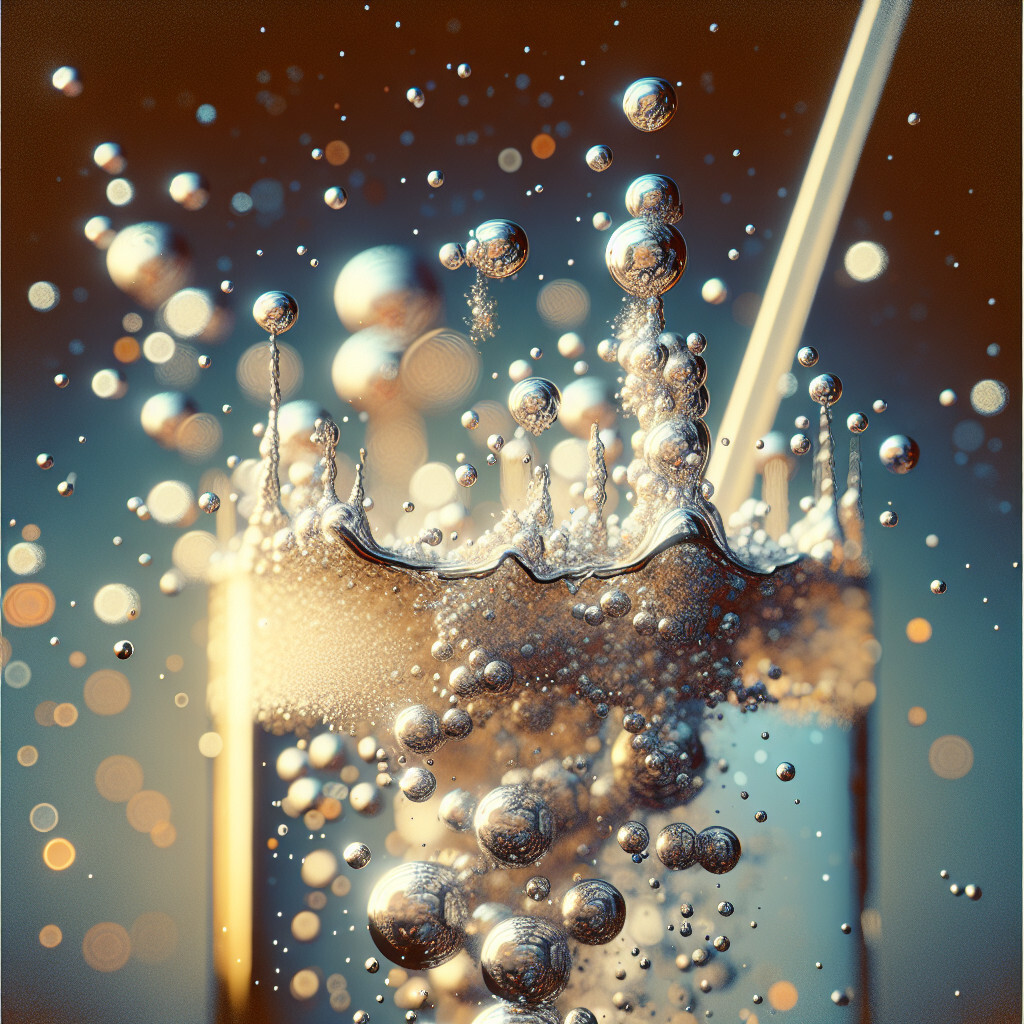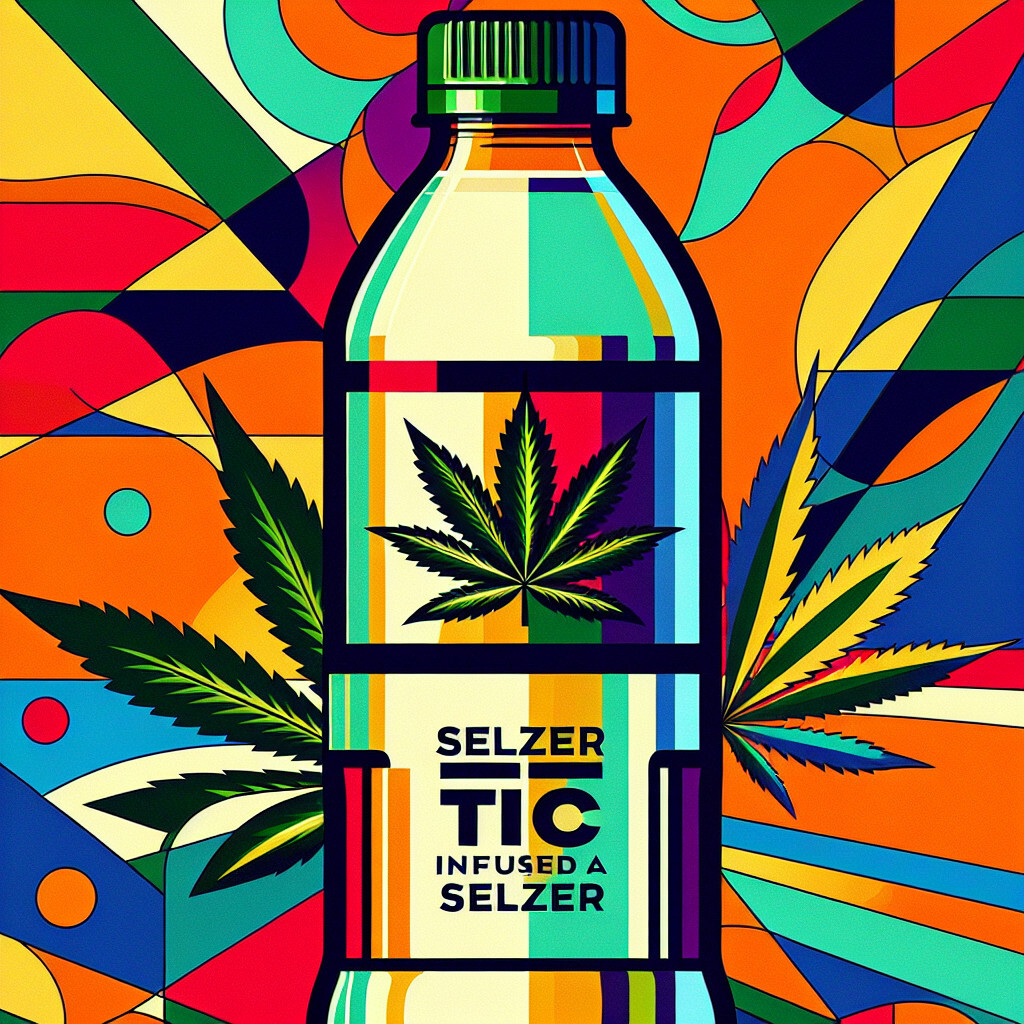-
Table of Contents
“Unveiling the Sparkling Reality of Seltzer Water”
Introduction

Seltzer water, also known as sparkling water, is a carbonated drink that is often consumed as a refreshing alternative to still water. The truth about seltzer water is that it is simply water into which carbon dioxide gas has been dissolved under pressure, giving it its characteristic bubbles and fizz. Despite common misconceptions, it does not contain any added sugars, salts, or calories, making it a healthier choice compared to other carbonated beverages. However, its acidity can potentially cause tooth enamel erosion if consumed in excess.
Unveiling the Health Impacts of Seltzer Water
Seltzer water, also known as sparkling water, has gained significant popularity in recent years. Its refreshing fizz and versatility in cocktails and non-alcoholic beverages have made it a staple in many households. However, amidst its rising fame, there have been numerous debates about its health impacts. This article aims to unveil the truth about seltzer water and its effects on our health.
Seltzer water is essentially water that has been carbonated, meaning it has been infused with carbon dioxide gas under pressure. This process gives the water its characteristic bubbles and fizz. Contrary to popular belief, seltzer water is not the same as club soda or tonic water, both of which contain added minerals or sugars. Pure seltzer water is simply water and carbon dioxide, and it contains no calories, sugars, or artificial sweeteners, making it a healthier alternative to sugary sodas and drinks.
One of the primary concerns about seltzer water is its potential impact on dental health. The carbonation process results in a slightly acidic beverage, leading some to worry about tooth enamel erosion. However, research suggests that the acidity of seltzer water is much less than that of common soft drinks or fruit juices. While it’s true that frequent consumption of any acidic beverage can contribute to dental erosion, drinking seltzer water in moderation and maintaining good oral hygiene practices can mitigate this risk.
Another common misconception is that seltzer water can lead to bone loss due to its acidity. However, scientific studies have found no significant link between the consumption of carbonated beverages and decreased bone mineral density. The confusion likely arises from studies on cola drinks, which have been associated with lower bone density, but this is thought to be due to their caffeine and phosphorus content, not their carbonation.
Seltzer water has also been scrutinized for its effects on digestion. Some people find that the bubbles in seltzer water can cause bloating and gas. However, others find that it can actually aid digestion. The carbonation can stimulate the body’s natural sensation of fullness, which can be beneficial for weight management. Additionally, some studies suggest that it may improve swallowing ability and reduce constipation.
Despite the myths and misconceptions, seltzer water can be a healthy addition to most diets. It provides a refreshing, calorie-free alternative to sugary beverages, and can contribute to daily hydration needs. However, it’s important to note that not all sparkling waters are created equal. Some brands may add sugars, artificial sweeteners, or other additives, so it’s crucial to read labels carefully.
In conclusion, seltzer water, when consumed in moderation, can be a part of a healthy lifestyle. It’s a calorie-free, sugar-free beverage that can help quench thirst and provide a satisfying alternative to more harmful sugary drinks. While it’s always important to maintain a balanced diet and good oral hygiene, there’s no need to fear the fizz of seltzer water. As with all things, moderation is key. So, the next time you reach for a refreshing drink, consider seltzer water as a healthy and enjoyable option.
The Science Behind Seltzer Water: Facts and Myths
Seltzer water, also known as sparkling water, has gained significant popularity in recent years. Its refreshing fizz and versatility have made it a favorite among health-conscious consumers and mixologists alike. However, despite its widespread use, there are several misconceptions about seltzer water that often lead to confusion. This article aims to demystify the science behind seltzer water, separating facts from myths.
Seltzer water is essentially water that has been carbonated, meaning it has been infused with carbon dioxide gas under pressure. This process gives the water its characteristic bubbles and fizzy sensation. Contrary to popular belief, seltzer water is not the same as club soda or tonic water. While all three are types of carbonated water, club soda contains added minerals like potassium bicarbonate and potassium sulfate, and tonic water contains quinine and sugar, giving it a distinct taste.
One of the most common myths about seltzer water is that it can lead to bone loss. This misconception likely stems from studies on cola beverages, which have been linked to lower bone mineral density. However, it’s important to note that these studies often point to the high levels of phosphoric acid in colas, not the carbonation itself, as the potential culprit. Seltzer water does not contain phosphoric acid, and research has not found a link between its consumption and bone loss.
Another myth is that seltzer water is harmful to dental health. While it’s true that any carbonated beverage, including seltzer water, is more acidic than still water, the risk to dental health is generally low. A study published in the Journal of Oral Rehabilitation found that while sparkling waters do have a slightly more erosive effect on teeth than still water, the difference is negligible. It’s worth noting, however, that flavored seltzer waters can contain added sugars and citric acid, which can contribute to tooth decay.
The belief that seltzer water can lead to weight gain is another common misconception. In reality, plain seltzer water is calorie-free and sugar-free, making it a healthier alternative to sugary sodas and juices. However, as with dental health, it’s important to be mindful of flavored seltzer waters, which can contain added sugars and calories.
On the positive side, seltzer water can contribute to hydration. Despite some claims that the carbonation can make you feel bloated and decrease your overall fluid intake, research has shown that seltzer water hydrates just as well as still water. In fact, a study published in the American Journal of Clinical Nutrition found no significant difference in the hydrating effects of still and sparkling water.
In conclusion, while there are many myths surrounding seltzer water, the science tells a different story. Seltzer water does not lead to bone loss, is not significantly harmful to dental health, does not cause weight gain, and hydrates just as well as still water. However, it’s important to be aware of the potential risks associated with flavored seltzer waters, which can contain added sugars and acids. As with any beverage, moderation is key. So, the next time you reach for a refreshing glass of seltzer water, you can do so with the knowledge that you’re making a choice that’s not only enjoyable but also backed by science.
Seltzer Water: A Deep Dive into its Nutritional Content
Seltzer water, also known as sparkling water, has gained significant popularity in recent years. Its refreshing fizz and versatility in cocktails and non-alcoholic beverages have made it a staple in many households. However, amidst its rising fame, there have been numerous debates about its nutritional content and its impact on health. This article aims to provide an in-depth analysis of the nutritional content of seltzer water and debunk some common misconceptions.
To begin with, seltzer water is essentially water that has been carbonated, meaning it has been infused with carbon dioxide under pressure. This process gives the water its characteristic bubbles and fizz. Contrary to popular belief, seltzer water is not synonymous with club soda or tonic water, both of which contain added minerals or sugars. Pure seltzer water does not contain any added sugars, salts, or artificial flavorings, making it a calorie-free and sugar-free beverage.
One of the most common misconceptions about seltzer water is that it can lead to calcium loss, thereby weakening the bones. This myth likely stems from the confusion between seltzer water and other carbonated beverages like colas, which have been linked to lower bone density. However, the culprit in these beverages is not the carbonation, but the phosphoric acid, which can interfere with calcium absorption. Seltzer water does not contain phosphoric acid, and thus, does not pose the same risk.
Another concern often raised is the potential of seltzer water to damage tooth enamel due to its acidity. It is true that the carbonation process makes seltzer water more acidic than regular water. However, it is significantly less acidic than other popular beverages like sodas and fruit juices. According to the American Dental Association, while seltzer water is slightly more erosive to teeth than plain water, the risk is considered very low unless consumed in excessive amounts.
In terms of its impact on digestion, seltzer water can be a double-edged sword. On one hand, the carbonation can stimulate the nerves responsible for inducing a burp, which can provide relief from bloating and a feeling of fullness. On the other hand, for some people, especially those with irritable bowel syndrome or similar conditions, the same carbonation can lead to increased gas and bloating.
In conclusion, seltzer water is a healthy alternative to sugary sodas and juices, provided it is consumed in moderation. It is calorie-free, sugar-free, and does not contain ingredients that can harm your bones or teeth. However, like any other food or beverage, individual responses can vary, and those with sensitive digestive systems may want to limit their intake. As always, it is advisable to consult with a healthcare professional if you have any specific concerns or questions about incorporating seltzer water into your diet. The truth about seltzer water is that it is a simple, refreshing beverage that can be enjoyed without significant concern for most people.
The Environmental Impact of Seltzer Water Production
Seltzer water, also known as sparkling water, has become a popular beverage choice for many individuals seeking a healthier alternative to sugary sodas and juices. However, while the health benefits of seltzer water are widely recognized, the environmental impact of its production is a topic that is often overlooked. This article aims to shed light on the environmental implications of seltzer water production, providing a comprehensive understanding of the issue.
The production of seltzer water involves a process known as carbonation, where carbon dioxide (CO2) is dissolved into water under pressure. This process is energy-intensive and contributes to greenhouse gas emissions. The CO2 used in the carbonation process is often sourced from natural gas or coal-fired power plants, both of which are significant contributors to global warming. Moreover, the energy used in the production, packaging, and transportation of seltzer water also contributes to its carbon footprint.
Packaging is another significant environmental concern associated with seltzer water. Most seltzer water is sold in single-use plastic bottles or aluminum cans, both of which have substantial environmental impacts. Plastic bottles are made from petroleum, a non-renewable resource, and their production releases harmful chemicals into the environment. Furthermore, while plastic bottles are recyclable, the sad truth is that only a small percentage of them are actually recycled. The rest end up in landfills or the ocean, where they can take hundreds of years to decompose.
Aluminum cans, on the other hand, are more likely to be recycled than plastic bottles. However, the production of aluminum is extremely energy-intensive and generates a significant amount of greenhouse gas emissions. Additionally, the mining of bauxite, the primary ore used to produce aluminum, leads to deforestation and loss of biodiversity.
The transportation of seltzer water also has environmental implications. Seltzer water is often transported long distances from the production site to the consumer, resulting in substantial carbon emissions. Moreover, the weight of the water significantly increases fuel consumption during transportation.
However, it’s important to note that the environmental impact of seltzer water is not entirely negative. For instance, the production of seltzer water at home using a soda maker can significantly reduce its environmental impact. This eliminates the need for single-use packaging and reduces transportation emissions. Moreover, some companies are taking steps to reduce the environmental impact of their seltzer water products. These steps include using renewable energy sources for production, implementing more efficient production processes, and using more sustainable packaging options.
In conclusion, while seltzer water may be a healthier beverage choice, its production has significant environmental implications. These include greenhouse gas emissions from the carbonation process and energy use, environmental damage from packaging, and carbon emissions from transportation. However, there are ways to mitigate these impacts, such as producing seltzer water at home or supporting companies that prioritize sustainability. As consumers, it’s crucial that we consider not only the health benefits of our beverage choices but also their environmental impact.
Q&A
1. Question: What is seltzer water?
Answer: Seltzer water is carbonated water, with no added ingredients or flavors.
2. Question: Is seltzer water the same as club soda?
Answer: No, seltzer water and club soda are not the same. Club soda contains added minerals like potassium bicarbonate and potassium sulfate, while seltzer water is simply carbonated water.
3. Question: Does seltzer water hydrate as well as regular water?
Answer: Yes, seltzer water can hydrate the body just as effectively as regular water.
4. Question: Is seltzer water bad for your teeth?
Answer: While not as harmful as sugary sodas, the carbonation in seltzer water can make it slightly more acidic than regular water, which could potentially harm tooth enamel over time if consumed in large amounts.
Conclusion
Seltzer water, also known as sparkling water, is a healthy beverage option. It is simply water with added carbonation, and it does not contain any sugars, calories, or artificial ingredients. Therefore, it can be a good alternative to sugary drinks and can contribute to hydration. However, it may cause bloating or heartburn in some individuals due to the carbonation.






